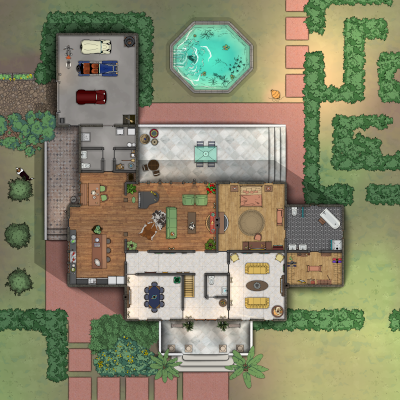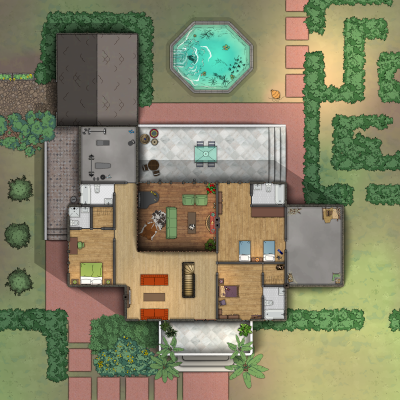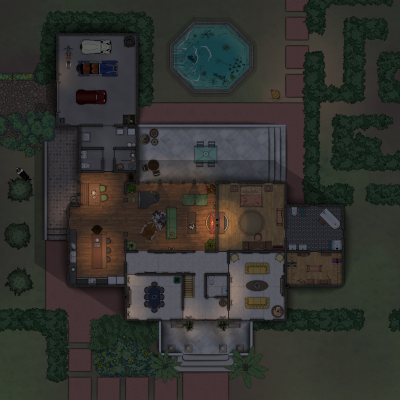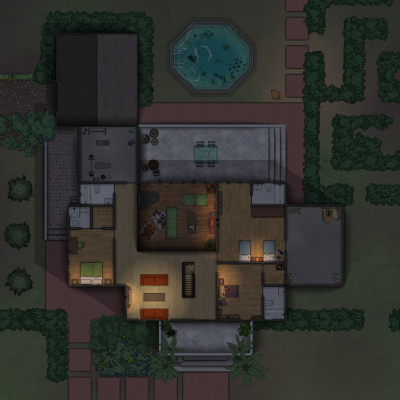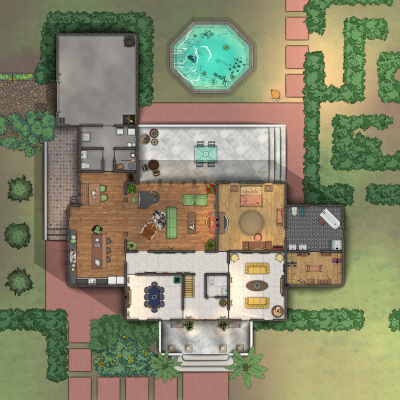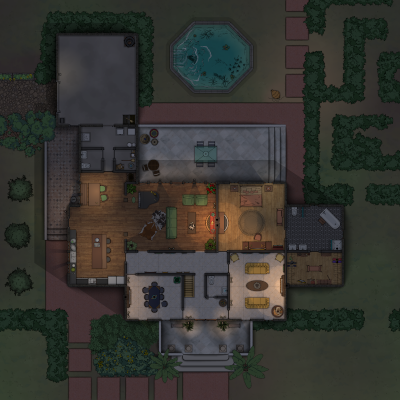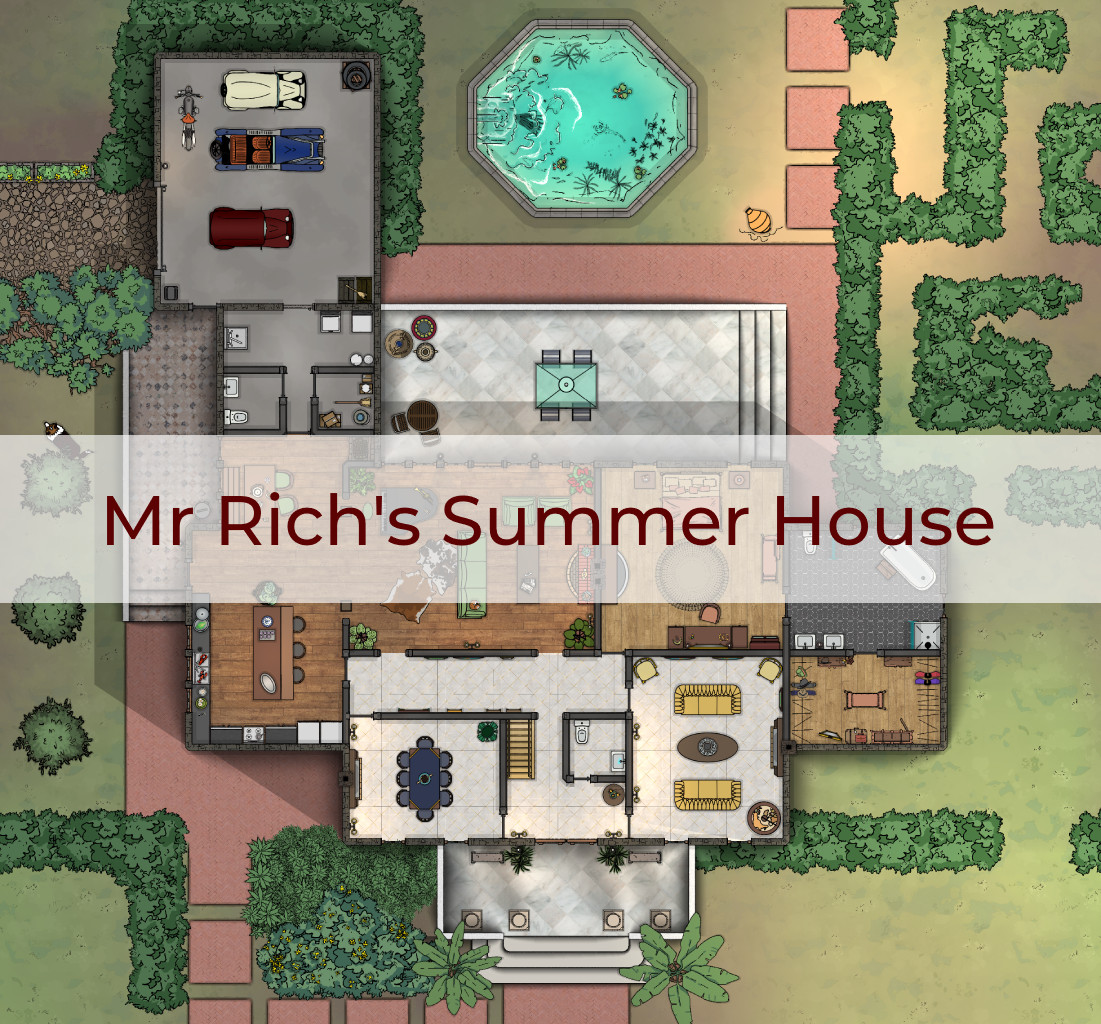Why hasn't Mr. Rich been seen at his summer retreat in three seasons, and what's behind those boarded windows facing the lake? Which rooms does the caretaker refuse to enter, and why do the neighbors avoid walking past the property after sunset? What happened during that final weekend party nobody talks about?
Follow Cthulhu Architect on BlueSky!I had noticed that both in the very poor and very rich extremes of society, the mad were often allowed to mingle freely.
― Charles Bukowski, Ham on Rye
Cordelia Thorne accepted the position as Mr. Rich’s summer estate manager sight unseen, drawn by the generous salary and the promise of solitude among the rolling hills. The house stood like a monument to excess---wraparound porches, manicured gardens, and windows that caught the light in ways that made her squint. Mr. Rich himself was cordial enough during their brief meeting, though she noticed how his smile never quite reached his eyes, and how he seemed to fade into the shadows even in broad daylight.
The first week passed pleasantly. Cordelia tended to the grounds, aired out the unused rooms, and enjoyed the silence that only vast wealth could purchase. But the silence wasn’t complete. There were sounds that didn’t belong---a rhythmic tapping from the walls, like morse code spelled out in some alien language. She told herself it was the house settling, though houses didn’t typically settle in mathematical patterns.
The dreams began on the eighth night. Cordelia found herself standing in the garden at midnight, watching the stars wheel overhead in configurations that hurt to perceive. In the dream, she understood that the stars weren’t moving---she was falling upward, through layers of reality as thin as tissue paper. She woke with her nightgown soaked in dew and her feet dirty, though she had no memory of leaving her bed.
Mr. Rich returned unexpectedly on a Tuesday, arriving with three guests whose names she didn’t catch and whose faces she couldn’t quite remember even minutes after meeting them. They gathered each evening in the conservatory, speaking in hushed tones about “the convergence” and “the old agreements.” Cordelia began to notice that the plants in the conservatory were thriving too well---growing in impossible directions, their leaves shifting colors that had no names.
On the final night, Cordelia discovered the true purpose of the summer house. Hidden behind a false wall in the library, she found Mr. Rich’s collection---not books, but specimens. Jars filled with things that might have been jellyfish, if jellyfish had too many eyes and could exist without water. Charts mapping celestial movements that wouldn’t occur for another thousand years. And photographs of previous estate managers, all bearing her face, stretching back decades.
The last entry in Mr. Rich’s journal was written in her own handwriting: “The house chooses its own caretakers. We are not employees but anchors, holding this place steady while greater forces align. Tomorrow, the new season begins, and I will forget this revelation until it is time to write it down again.” Cordelia set down the journal and walked to the window, where her reflection showed a woman who had been tending this house for much longer than a week.
